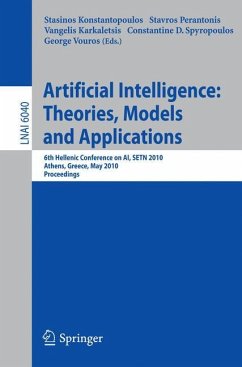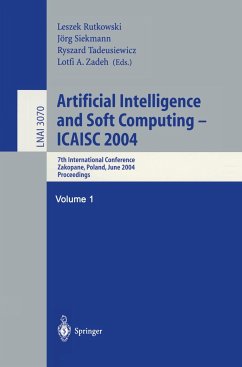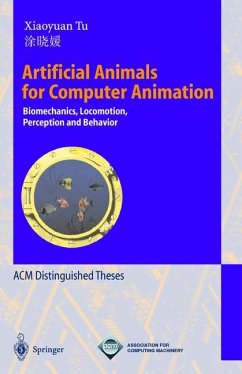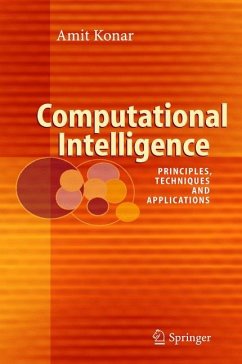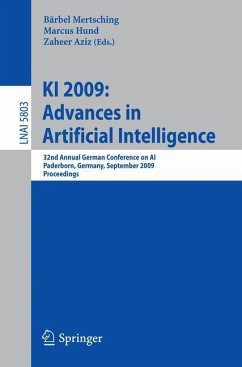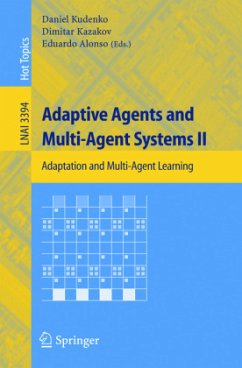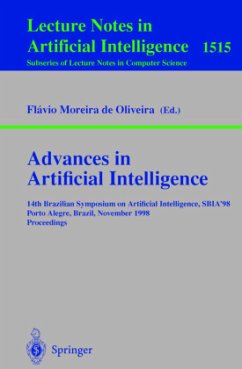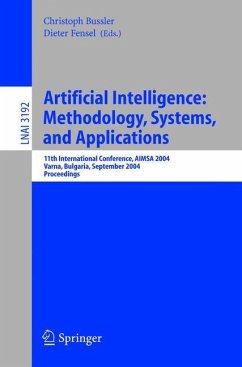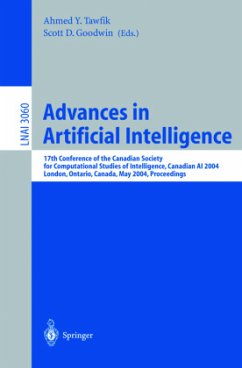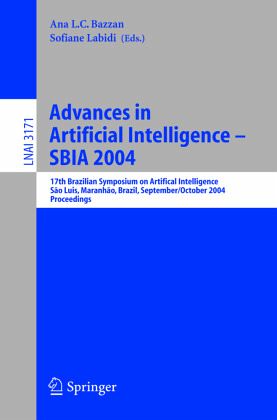
Advances in Artificial Intelligence - SBIA 2004
17th Brazilian Symposium on Artificial Intelligence, Sao Luis, Maranhao, Brazil, September 29-October 1, 2004, Proceedings
Herausgegeben: Bazzan, Ana L. C.; Labidi, Sofiane

PAYBACK Punkte
39 °P sammeln!
SBIA, the Brazilian Symposium on Arti?cial Intelligence, is a biennial event intended to be the main forum of the AI community in Brazil. The SBIA 2004 was the 17th issue of the series initiated in 1984. Since 1995 SBIA has been accepting papers written and presented only in English, attracting researchers from all over the world. At that time it also started to have an international program committee, keynote invited speakers, and proceedings published in the Lecture Notes in Arti?cial Intelligence (LNAI) series of Springer (SBIA 1995, Vol. 991, SBIA 1996, Vol. 1159, SBIA 1998, Vol. 1515, SBI...
SBIA, the Brazilian Symposium on Arti?cial Intelligence, is a biennial event intended to be the main forum of the AI community in Brazil. The SBIA 2004 was the 17th issue of the series initiated in 1984. Since 1995 SBIA has been accepting papers written and presented only in English, attracting researchers from all over the world. At that time it also started to have an international program committee, keynote invited speakers, and proceedings published in the Lecture Notes in Arti?cial Intelligence (LNAI) series of Springer (SBIA 1995, Vol. 991, SBIA 1996, Vol. 1159, SBIA 1998, Vol. 1515, SBIA 2000, Vol. 1952, SBIA 2002, Vol. 2507). SBIA 2004 was sponsored by the Brazilian Computer Society (SBC). It was held from September 29 to October 1 in the city of S ao Luis, in the northeast of Brazil, together with the Brazilian Symposium on Neural Networks (SBRN). This followed a trend of joining the AI and ANN communities to make the joint event a very exciting one. In particular, in 2004 these two events were also held togetherwiththeIEEEInternationalWorkshoponMachineLearningandSignal Processing (MMLP), formerly NNLP. The organizationalstructure of SBIA 2004was similar to other international scienti?cconferences.Thebackboneofthe conferencewasthe technicalprogram whichwascomplementedbyinvitedtalks,workshops,etc.onthemainAItopics.






